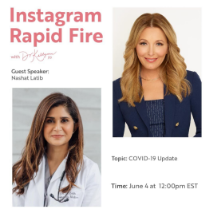Essential steps to nurture your well-being before conceiving
As you embark upon your journey to conceive, it will be very important to focus on maximizing both your physical and mental health. This will help you navigate the unique challenges of pregnancy and parenting while also reducing risk factors that can impact pregnancy outcomes.
As functional fertility specialists, we completely understand that the road to pregnancy is different for everyone. But the steps to conceiving well and carrying your healthy baby to term apply to all women—regardless of how you get there!
We highly recommend a functional medicine approach to increase the likelihood of having a healthy pregnancy and baby. Let’s explore each of the core tenets and simple tips to bring them into your daily life during the crucial preconception period.
Reduce Exposure to External Toxins
Environmental toxins, such as pesticides, heavy metals, and endocrine-disrupting chemicals (EDCs), can negatively impact reproductive health and pregnancy health. EDCs are found in many everyday products, including plastics, personal care items, and cleaning supplies, and can interfere with hormone function.
To minimize exposure, choose organic produce when possible, use glass food storage containers over plastic ones, and opt for organic, natural, and fragrance-free personal care and cleaning products.
Avoid harmful chemicals, secondhand smoke, and other toxic substances that can increase your risk of health problems.
Avoid Internal Toxins
Internal toxins refer to negative thoughts, beliefs, and emotions that can adversely affect your physical well-being and mental health. For example, the people you spend time with can significantly impact your emotional well-being, which in turn can affect your fertility and pregnancy journey. Surround yourself with individuals who uplift and support you rather than those who bring you down or cause unnecessary stress.
Engaging with positive, like-minded people can help you maintain a “fertile mindset” and reduce the burden of internal toxins, such as negative self-talk or self-doubt. Don’t be afraid to set boundaries and prioritize your own well-being during this important time.
Choose people who lift you up, seek to make your life easier, and genuinely care about you and your growing family.
Upgrade Your Prenatal Foods and Supplements
Eating a healthy diet before getting pregnant is important for both you and your baby.
Include plenty of high-quality protein from foods like fish, meat, chicken, eggs, dairy, beans, lentils, tofu, edamame, nuts, and seeds, as protein helps build your baby’s muscles, skin, blood, and other important cells.
Eating a nutritious diet gives your body the essential nutrients required for your baby’s development and growth. Health professionals recommend pregnant women consume approximately 1.1 grams of protein per kilogram of their body weight each day(1).
Omega-3s are good fats that help your baby’s brain develop. Omega-3s may also lower your child’s chances of allergies or asthma later in life. Getting enough omega-3s is important for you as well! They can help prevent depression during pregnancy and reduce the risk of having your baby too early, which is associated with low birth weight and other health issues.
Certain vitamins and minerals are especially important during pregnancy. Not getting enough folate, iron, calcium, and vitamin D can impact your baby’s development. Deficiencies in these vitamins can cause health problems for both you and your baby that may last a long time.
Prenatal vitamins are a good idea for all women during the preconception period and throughout pregnancy.
Always choose pharmaceutical-grade supplements, like the ones we have in our Reimagined Health shop. These supplements are held to the highest purity, potency, and quality standards, ensuring you receive the most effective doses of essential nutrients without any harmful fillers or contaminants. Pharmaceutical-grade supplements undergo rigorous testing, giving you peace of mind that you provide the best possible nutrition for your body and your growing baby.
Optimize Your Gut Health
Maintaining a healthy gut microbiome is crucial for optimal fertility and overall health. The gut microbiome plays a significant role in hormone balance, nutrient absorption, and immune function. Incorporate probiotic-rich foods like yogurt, kefir, sauerkraut, and kimchi into your diet, and consider taking a high-quality probiotic supplement to support your gut health during the preconception period.
Reduce or Eliminate Your Caffeine Intake
While many people rely on caffeine to get through the day, it is important to minimize or eliminate your intake when trying to conceive and during pregnancy. Studies have shown that high levels of caffeine consumption can increase the risk of miscarriage and other pregnancy complications(2).
If you can’t give up caffeine completely, limit your intake to less than 200mg per day, roughly equivalent to one 12-ounce cup of coffee(3).
Stop Smoking, Drinking Alcohol, and Taking Recreational Drugs
Smoking, alcohol use, and recreational drug use can all have detrimental effects on fertility and pregnancy outcomes.
Cigarette smoke contains toxins that can damage egg and sperm quality, while alcohol can interfere with hormone production and increase the risk of birth defects(4).
Recreational drugs can also harm fetal development and lead to long-term health issues for your child(5).
If you need help quitting, don’t hesitate to reach out to your healthcare provider for support. Substance use is one of the most significant risk factors for adverse pregnancy outcomes.
Improve Your Sleep Quality
We like to say you can “sleep to conceive.” Adequate sleep is essential for maintaining hormonal balance, particularly for those hormones that regulate menstrual cycle and ovulation.
A recently published article reveals that the hypothalamus—which regulates sleep-wake cycles—is the region of the brain responsible for controlling various bodily functions, including the release of gonadotropin-releasing hormone (GnRH)(6). This crucial hormone stimulates the production of follicle-stimulating hormone (FSH) and luteinizing hormone (LH), which are essential for egg growth and ovulation.
When you don’t get steady, good-quality sleep, your body makes more of the stress hormone called cortisol. Too much cortisol can scramble the signals between your brain and ovaries. This hormonal imbalance might cause issues with your period, make it harder to ovulate properly, and could even affect your ability to get pregnant.
Exercise Mindfully to Conceive With Ease
There is a vital link between exercise and fertility.
When you’re trying to increase your fertility, exercising mindfully is important. Aim for a balanced routine with a mix of cardio, strength training, and flexibility exercises while avoiding excessive or overly intense workouts that can disrupt your hormonal balance.
It’s also crucial to pay attention to your menstrual cycle and adjust your fitness routine accordingly, doing more intense exercise in the follicular phase and restorative practices like yoga in the luteal phase.
Choose activities you enjoy to make exercise a positive part of your lifestyle. And if you’re new to exercise or have health conditions, consult a healthcare professional or fitness expert who can help you identify the appropriate routine for you.
Manage Your Stress to Increase Your Odds of Conception
It’s important to find ways to unwind, relax, and feel supported by others during this exciting time as you prepare for your new arrival.
For example, meditation and gratitude journaling can be healthy outlets to manage the stress that comes with fertility treatments.
Yoga is increasingly recommended for people trying to conceive because it helps relieve stress that can accompany fertility challenges and because the therapeutic benefits may enhance fertility.
If you are undergoing treatments such as in vitro fertilization (IVF), the benefits of include:
- Increased blood flow to reproductive organs
- Decreased tension in hips and pelvis
- Reduced stress – which in turn can help decrease cortisol levels
- Better endocrine function and hormonal balance
- Overall toning and muscle strengthening
- Reduce discomfort associated with IVF cycles
- Greater peace and ability to relax
Acupuncture is another holistic treatment often recommended by functional fertility specialists. It can help reduce stress during the preconception period by promoting relaxation, balancing hormones, and improving overall well-being, which may enhance fertility and increase the likelihood of a healthy pregnancy.
In acupuncture, very fine sterilized needles are inserted into specific points on the body that have been empirically proven effective in treating certain disorders.
Recent studies have shown that acupuncture administered immediately before and immediately after embryo transfer during IVF (in vitro fertilization) may improve a woman’s chance of pregnancy by relaxing the patient and improving blood flow to the uterus.
Reduce Exposure to Electromagnetic Fields (EMFs)
Emerging research suggests that exposure to electromagnetic fields (EMFs) from electronic devices may negatively impact fertility.
To minimize exposure, keep your phone and other electronic devices away from your body when possible, especially while sleeping.
Consider using an EMF-blocking case for your phone and turning off Wi-Fi routers at night to create a sleep environment with reduced EMF exposure.
Conclusion
As a woman pursuing pregnancy, it’s important to prioritize your physical and mental health. Focus on a functional health approach, which includes eating a healthy diet, getting regular exercise, avoiding fertility-damaging toxic sources, and utilizing stress management techniques to optimize your fertility. Build a strong support network to navigate the unique challenges of pregnancy and parenting. By nurturing your well-being, you lay the foundation for a healthy pregnancy – empowering yourself to become the best mom you can be.
Our clients say that they finally feel heard when they work with us. They often come to us after Western medicine approaches fail them.
So, if you have been given a diagnosis of “unexplained infertility,” don’t give up! There is no such thing as unexplained infertility—there is always a reason!
We have dedicated the last two decades to helping women and couples get pregnant, even when everything else has failed. And we are exceptionally proud of our over 80% success rate!
Watch our free, on-demand masterclass here to get insight into our proven fertility formula. If our approach resonates with you, we invite you to apply to work with us. We’ve helped countless people like you succeed in optimizing their fertility, even when they are starting a family a little later in life.








